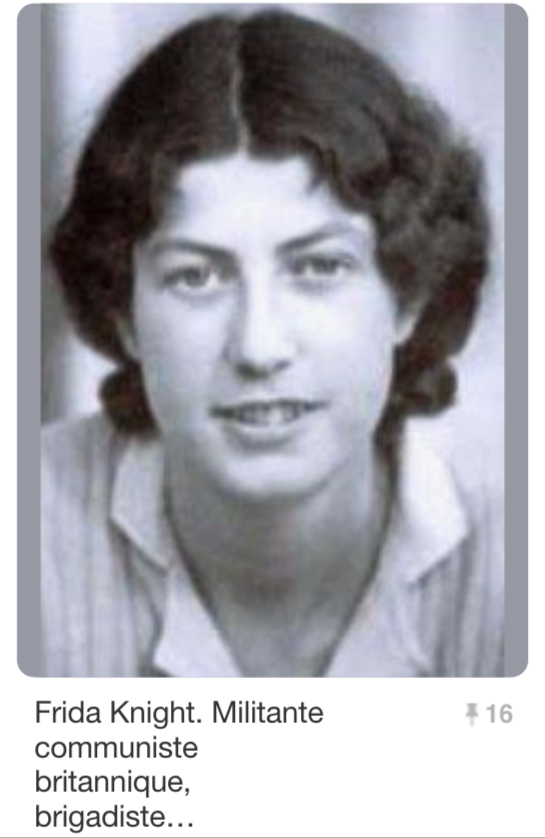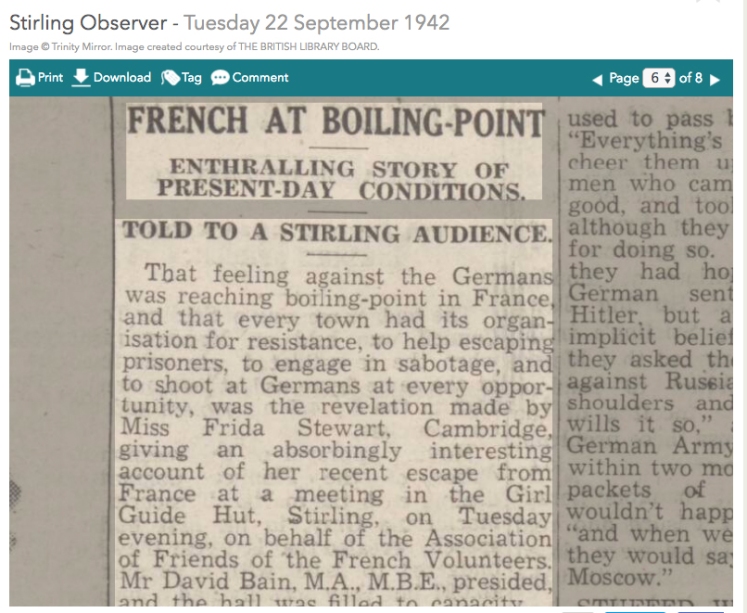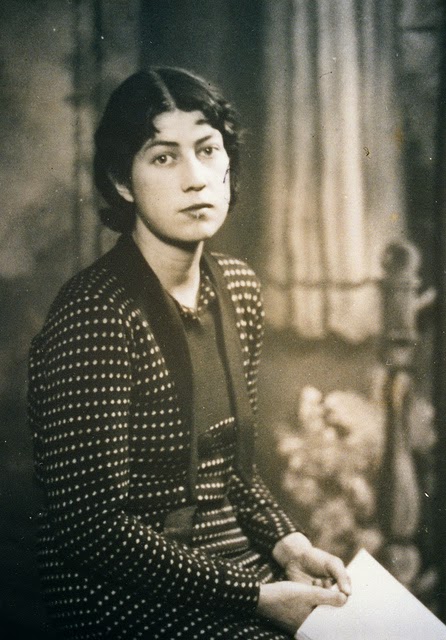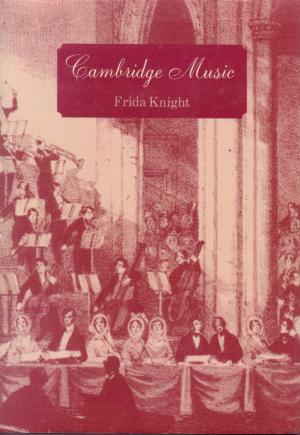Summary
The case of Cambridge hero Frida Knight (nee Stewart) who volunteered to fight the fascists in the Spanish Civil War, who escape imprisonment by the nazis in occupied France, and returned to write a book about Cambridge music in her later years.
I hadn’t heard about Frida Knight until…about an hour ago before starting this blogpost. Thank you to Anna Constantas for tipping me off.

This screengrab taken from this Pinterest account
The most accessible summary of her life that I’ve found is this one from Graham Stevenson’s site here. I don’t intend on copying and pasting it – his article is worth reading in his own words. There’s also this article on the Spartacus historical website too, which mentions that Frida used to go to The Perse for Girls in Cambridge – the same school that several friends of mine from my sixth form college days used to go to.
I’m taking Graham’s article at face value – I’ve not had the chance to go into depth on Frida’s background, though from what I’ve read already I’m astonished that she doesn’t have a much higher profile in Cambridge. But then I’ve said the same for the women I’ve written about in recent blogposts – all too easily forgotten.
The first thing that strikes me about Graham’s post is how Frida’s parents didn’t try to hide away the poverty that was not far from Frida’s family home. We know this was the case because Eglantyne Jebb’s work that I referred to in the last but one blogpost corroborates this in her study “Cambridge – a brief study in social questions” which she published in 1906, and discussed in various local events in 1907.
A talented musician, Graham’s article talks about her work with the poor during the depression. I had a look in the newspaper archives and it turns out that just before she went to Spain, she arranged what sounded like a wonderful performance in Hull.
The above (clockwise) from the wonderful British Newspaper Archive.
To quote the top right screenshot:
“When Miss Stewart decided to perform Purcell’s classic tragedy she called in musical folk from the district to swell the chorus, and Mr Norman Dixon from Hull Philharmonic Society was asked to conduct.
Enthusiasm and careful preparation combined to make last evening one of distinct quality. We have seen through the influence of drama festivals village groups tackling plays like “Frogs” and “Noah”, but to find opera approached with hearty vigour guided by musical skill, by ordinary simple folk, is a new experience”
Now, while I wouldn’t dream of calling my fellow singers in We Are Sound ‘ordinary, simple folk’, many of us don’t have musical backgrounds. Yet the article’s description of Frida reminds me of one of Cambridge’s finest contemporary musical directors, Andrea Cockerton. Ordinary people making music like this – at Tattersalls in Newmarket.
Off to face the fascists in the Spanish Civil War
We know that she went on her recuperation tour of Europe around the time of the first attempt by the far right in Germany to seize power – a time when inter-war Germany was wracked with an unstable government and hyper-inflation. It would have been shortly after the Hull concert that she drove the ambulance Graham mentioned, from London to Spain.
One thing she has in common with Eva Hartree who I blogged about in my previous blogpost is that she too worked with refugees fleeing war, violence and oppression – the sort that the UK tried to keep away from through its policy of neutrality in the mid-late 1930s but ultimately would have to come face-to-face with in the looming war.
Graham’s article describes what she did in Spain and how she ended up being captured by occupying German forces while in France. Yet she escaped from France, and made the long and tortuous journey back to the UK via Spain, Portugal and Ireland. 
From the British Newspaper Archive again, an example of a talk she gave of conditions in France shortly after her escape.

There are a number of Spanish language websites that pay tribute to Frida for her actions during the Spanish Civil War, the photograph above being from this one.
After the war
As the various websites state, she moved to Reading to be with her husband before returning to Cambridge in 1970. It turns out she never forgot her love of music – or that Cambridge was home. She published this book about Cambridge music in 1980 – a good 16 years before she died.

…which seems like such a wonderfully typical Cambridge thing do to – living a very eventful life facing all sorts of challenges, before coming back home to write a book on something that in the grand scheme of things is probably only of local or subject-specific interest. (Second hand copies of the book are still available to buy online).
I’d be interested to hear/read comments from those of you who knew Frida in local activist circles as a number of anecdotes seem to show that she was active in Cambridge in peace movement circles all the way up until her death in late 1996.



One thought on “A Cambridge hero who took on the fascists – in two conflicts…and lived”